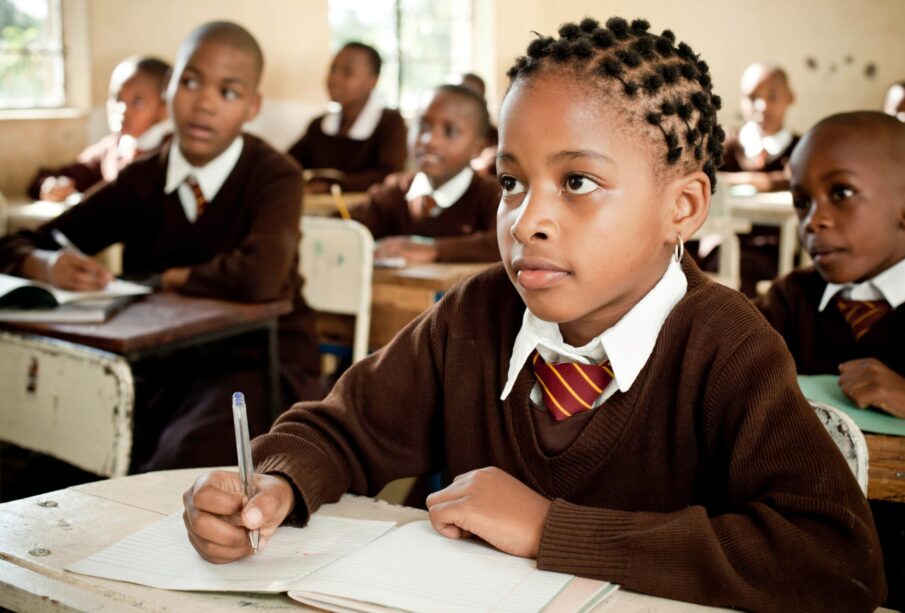SOCIAL ASSISTANCE IN SOUTH AFRICA: A LIFELINE FOR EDUCATIONAL SUCCESS

By Precious Mupenzi
- Social assistance programmes in South Africa, such as the Child Support Grant, Foster Child Grant, and Care Dependency Grant, provide crucial financial support to families, enabling children to access and excel in education.
- Over the past 30 years, South Africa has transitioned from exclusionary policies to more inclusive social assistance measures, addressing poverty and inequality and fostering educational opportunities for vulnerable populations.
- Studies demonstrate the positive impact of social grants on educational outcomes, as evidenced by the 2023 matric results where grant beneficiaries achieved high pass rates and gained access to higher education, exemplifying the transformative power of governmental support.
Social assistance in South Africa is one of the social protection tools that plays a crucial role in keeping children in school. Programmes like the Child Support Grant, Foster Child Grant, and Care Dependency Grant provide essential financial support to families, enabling children to attend and succeed in school. These efforts are vital in building a more educated and prosperous nation, breaking the cycle of poverty, and fostering long-term economic growth.
The evolution of social assistance in South Africa over the past 30 years has been marked by a significant shift from the exclusionary and unequal policies of the apartheid era to a more inclusive and equitable system. This transformation has played a crucial role in addressing poverty and inequality, ensuring that vulnerable populations receive the support they need to lead dignified lives. As the country continues to refine and expand its social assistance programmes, the positive impact on individuals and communities is expected to grow, contributing to a more just and prosperous society.
Numerous studies and reports underscore the positive impact of social assistance on educational outcomes in South Africa. Social grants have been instrumental in increasing enrolment rates, especially in primary and secondary schools, as financial support enables families to enrol their children at the appropriate age. This financial stability provided by social grants also allows children to focus more on their studies and less on economic challenges, leading to better academic performance.
The 2023 matric results vividly illustrate this impact: among the 897,775 Grade 12 learners who wrote their National Senior Certificate (NSC) exams, 543,786 were social grant beneficiaries. These beneficiaries not only constituted the largest group of learners taking the NSC but also achieved an impressive overall pass rate of 82.9%. This cohort included 62 out of the 110 top-performing learners awarded by the Department of Basic Education. Furthermore, 202,156 social grant recipients earned a Bachelor’s pass, granting them access to higher education, and collectively, they achieved 160,326 distinctions. The majority of these learners were recipients of the Child Support Grant, predominantly from KwaZulu-Natal, the second-best performing province after Free State. This data highlights the significant role social grants play in improving educational outcomes in South Africa.
Bonisiwe Khumalo, a 41-year-old mother of two from Ngwavuma, shares her poignant journey, illuminating the profound impact of social assistance programmes in South Africa. Her narrative unfolds as a testament to resilience, hope, and the transformative power of governmental support.
Reflecting on her experiences, Khumalo recounts, “Government support has been a lifeline for my family, ensuring that my children could stay in school and pursue their dreams.” Her path, though marked by challenges, was buoyed by the lifeline of social assistance.
Initially, without completing her matric, Khumalo found herself grappling with the elusive pursuit of stable employment, resorting to irregular piece jobs to make ends meet. However, amidst uncertainty, she discovered solace in the Child Support Grant. This invaluable assistance covered basic needs and crucial school-related expenses for her daughters, providing them with the foundation to focus on their studies. “The grant was our safety net, allowing my children to thrive academically,” Khumalo reflects with gratitude.
Yet, as her daughters matured, the phased-out Child Support Grant left Khumalo confronting a new wave of uncertainty. “Losing the grant was terrifying,” she admits, her concerns centring on her daughters’ educational prospects. In this period of apprehension, Khumalo turned to the Social Relief of Distress (SRD) programme, a temporary measure that ensured her daughter’s education remained uninterrupted. “The SRD programme was a crucial support, bridging the gap and alleviating our fears,” Khumalo explains.
Her daughter’s triumph in the matric exams of the class of 2023 brought immense relief and pride. “I am so proud of her achievements,” Khumalo beams, her daughter’s success a testament to resilience and determination. With funding secured from the National Student Financial Aid Scheme (NSFAS), her daughter is now poised to embark on higher education in June, a testament to the transformative impact of support structures.
Additionally, Khumalo underscores the stability provided by her council house, emphasising its pivotal role in anchoring her family amidst the challenges they faced. “Having a stable home has been crucial for our family,” she affirms, acknowledging the foundational importance of secure housing.
In gratitude, Khumalo reflects on the government’s role in their journey. “The government’s assistance has been a blessing,” she remarks. “It has alleviated the burden of providing for my family and has opened doors to a brighter future.”
Bonisiwe Khumalo’s narrative transcends her journey, echoing the broader impact of social assistance programmes in South Africa. Through the Child Support Grant, SRD programme, and other initiatives, the government has become a beacon of hope, ensuring that vulnerable families can access vital resources and opportunities. As Khumalo concludes, “Social assistance has not only provided immediate relief but has also paved the way for a brighter future for my children, illuminating the path toward a more equitable and prosperous society.”














